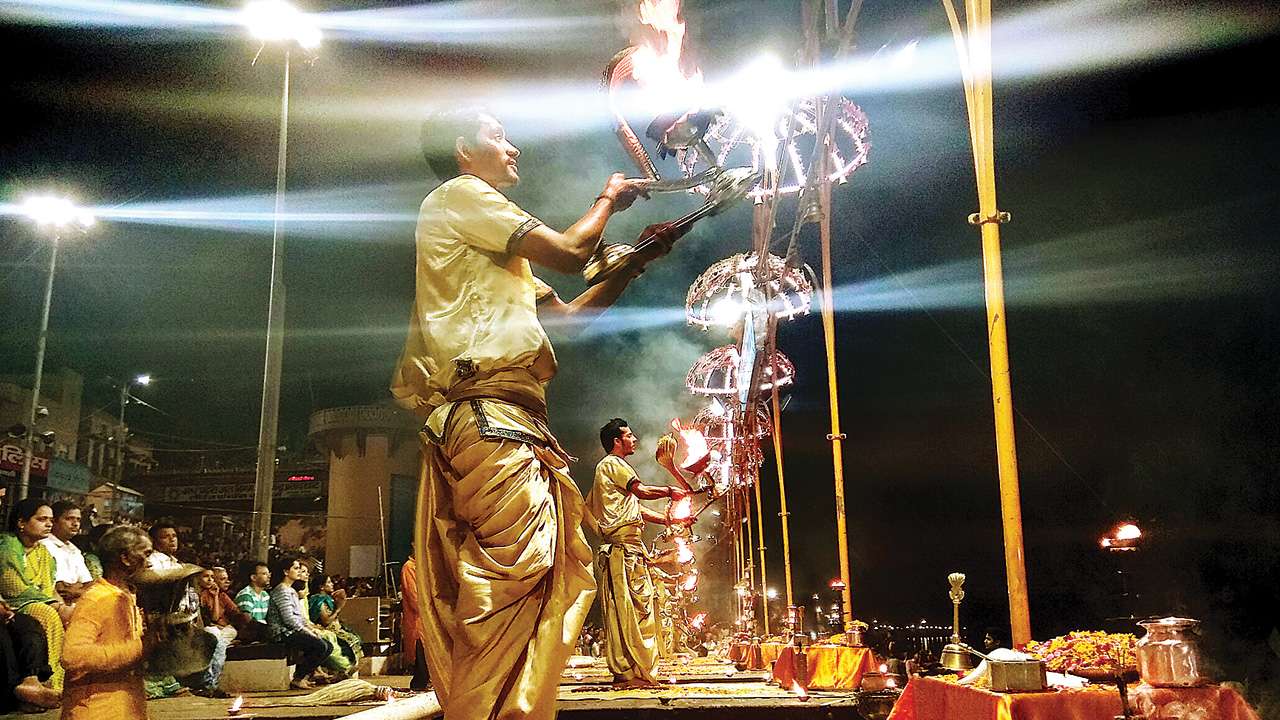
The political legacy of Jawaharlal Nehru, as India’s first and longest-serving Prime Minister, continues to be debated in and out of Parliament, election speeches of politicians across the country and on endless TV studio panel-discussions.
In The Hindu Phenomenon posthumously published in 1994, Girilal Jain one of India’s finest editors, plumbed the depths of Nehruvian legacy to reveal facets of the former PM’s intellectual framework.
“Nehru’s role in the modernization of India is well known. There is however another face of Nehru which places him, even if indirectly, among the proponents of Hindu civilization. This, of course, is not one of Nehru’s prominent faces. He rarely allowed it to come to the fore,” wrote Jain.
“Nehru struggled to discover the soul of India as no other public figure did. His intellectual background led him to take a synthetic (aggregationist) view of Indian culture, though on a more careful reflection, it should have been possible for him to recognize, on the one hand, its integral unity founded on yoga, of which the Veda itself is a fruit, and, on the other, its capaciousness on the strength of the same boundless yogic foundation which placed no limit on the freedom of the human spirit. Inevitably this synthetic view of Indian culture led him to accept the theory of Hindu-Muslim cultural synthesis. The fact of Partition must have provoked some doubt in his mind. He was too sensitive and honest an individual not to be shaken by so traumatic a development,” analysed Jain, in whose view the self-renewal of Hindus had been ongoing since the early 19th CE.
ALSO READ: Thus wrote Mr Girilal Jain
Could Nehru, in the post-Partition years, review and restate his basic position on Hindu-Muslim cultural synthesis? “No political leader in his position could afford to do so. And if it was too late before Partition, it was certainly worse after Independence when he was charged with the task of covering up the wounds inflicted by the Muslim League,” wrote the former Times of India editor, with empathic and admirable insights.
“Three of Nehru’s speeches deserve attention,” Jain pointed out. “At the convocation of Aligarh Muslim University on 24 January 1948, he said: ‘I am proud of India, not only because of her ancient, magnificent heritage, but also because of her remarkable capacity to add to it by keep the doors and windows of her mind and spirit open...there is a continuing synthesis in India’s real history and the many political changes which have taken place have had little effect on the growth of this variegated and yet essentially unified culture...How do you feel about this past? Do you feel that you are also sharers in it and inheritors of it and, therefore, proud of something that belongs to you as much as to me? Or do you feel alien to it and pass it without understanding it...we are trustees and inheritors of this vast treasure...You are Muslims and I am a Hindu. We may adhere to different religious faiths or even to none; but that does not take away from that cultural inheritance that is yours as well as mine’.”
Jain felt, “It is inconceivable that Nehru could be so naïve as to believe even vaguely that educated Muslims could possibly regard themselves as ‘sharers and inheritors’ of the cultural heritage he was speaking about. In fact, it would be reasonable to infer that he said what he did precisely because he knew that the opposite was true.” Nehru’s poser to the audience was in effect a political-cultural paradox of the 1940s.
On April 9, 1950, at the inauguration of Indian Council for Cultural Relations, Nehru said, “Culture, if it has to have any value, must have a certain depth. It must also have a certain dynamic character…the individual human being, race or nation must necessarily have a certain depth and certain roots somewhere. They do not count for much unless they have roots in the past, which past is after all the accumulation of generations of experience… Otherwise you become just pale copies of something which has no real meaning to you as an individual or as a group.”
Jain pointed out that Nehru’s “emphasis on roots, depth, past must come as a surprise to all those who are not familiar with this little known face of Nehru. It must also raise the question why he did not develop this theme and indeed why he kept this face of his, by and large, so well covered?”
On February 22, 1959, delivering the Azad memorial lecture Nehru said, “When Islam came to India in the form of political conquest, it brought conflict; it encouraged the tendency of Hindu society to shrink still further within its shell. Hence the great problem that faced India during the medieval period was how these two closed systems, each with its strong roots, could develop a healthy relationship…In India, slowly a synthesis was developed. But before this could be completed, other influences came into play.”
Girilal Jain commented, “The addresses quoted do not contain any action programme. Nehru spoke often of the need for ‘national integration’. But if he ever defined what that called for by way of change among Muslims in practical terms, I am not aware of it…his policy of secularism did not provide, even in theory, for a cultural synthesis. It sought to by-pass the civilizational-cultural issue altogether.” Now, this calls for fresh debate.
The author is a researcher, writer, journalist and communications consultant